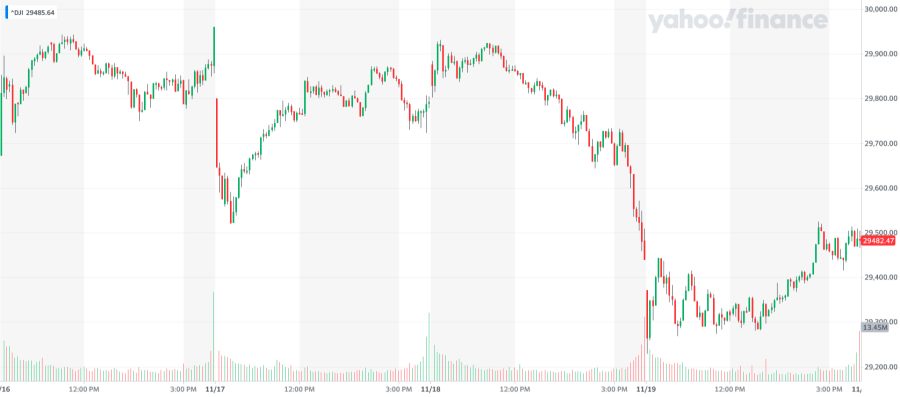The year 2020 was one of the worst years for both the American economy as well as the global economy. In mid-March, as the United States entered a lockdown, the stock market crashed and millions of Americans were laid-off, had their hours cut, or were forced to work from home. This overall stock market crash led investors to pull their money out of the stock market, increasing the financial strain on thousands of companies. However, this past week, economic analysts were happy to report that the economy looks to have recovered from that initial market crash. So, what exactly happened to the stock market these past troublesome months, and how did it recover?
Economic and financial analysts use a host of metrics to analyze economic stability. Although the stock market is not a perfect indicator of the economic state of any one nation or economic zone, the stock market can present good indicators regarding the overall trajectory of the economy during any certain given time.
According to CNBC in an article published on Nov. 18, “Stocks have ripped higher this month amid clarity following the U.S. election and the positive news on potential coronavirus vaccines.” (1) Clearly, according to this article, at this moment in time, the stock market is on an upward trajectory following a devastating year for the stock market and the United States economy. Although the COVID-19 lockdown has placed a heavy strain on the economy, economic analysts look to the future and hope to see a period of economic recovery that will allow us as a society to move past the market crash of 2020. As the stock market improves, there are several key factors that will assist in the stock market’s overall improvement.
On Nov. 15, CNBC published an article titled, “Dow jumps 470 points to a record as another potentially effective vaccine fuels recovery hope.” As economic analysts are hopeful to see an economic recovery, the current volatility in the stock market is making it difficult to predict when and if the market will ever fully recover from the pandemic. As the article reports, “U.S. stocks rose on Monday after preliminary coronavirus vaccine data from Moderna further lifted expectations of a strong economic recovery.” (2) News surrounding a possible COVID-19 vaccine is making investors and companies hopeful for the future of the United States and the world. American investors are looking for concrete evidence so they can better predict the eventual stability of the stock market.
The article continues, “The number of coronavirus cases is still rising, thus threatening the prospects of a swift economic recovery.” (3) Although investors are hopeful that the economy will recover quickly in the coming months, there is no guarantee that the vaccine will be able to be distributed effectively and that COVID-19 cases don’t continue to increase. As we look to improve the state of the economy of the U.S. there are several key factors we must understand beforehand.
First, the stock market does not completely indicate how a particular economy is performing. According to the New York Times, “Economists who have studied the performance of stock markets over time say there’s relatively little evidence that economic growth matters to the outcome of the market at all.” (4) While this is true, the stock market is still one of many indicators that indicate how the economy is doing. Although it is not a perfect indicator, it does give some insight into how companies are doing.
As Americans look to return to work and return to some sense of normalcy, it is important to remember that the American economy is still a long way from full recovery. With the upcoming possibility of a vaccine and the looming possibility of a second massive wave of COVID-19 infections, the economy is still far away from full economic stability.





















































